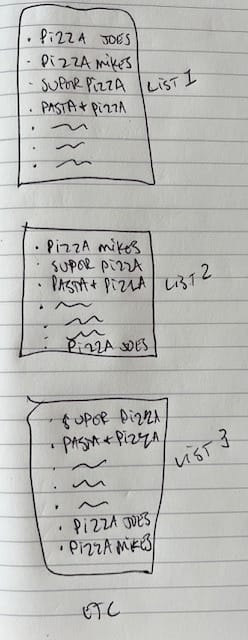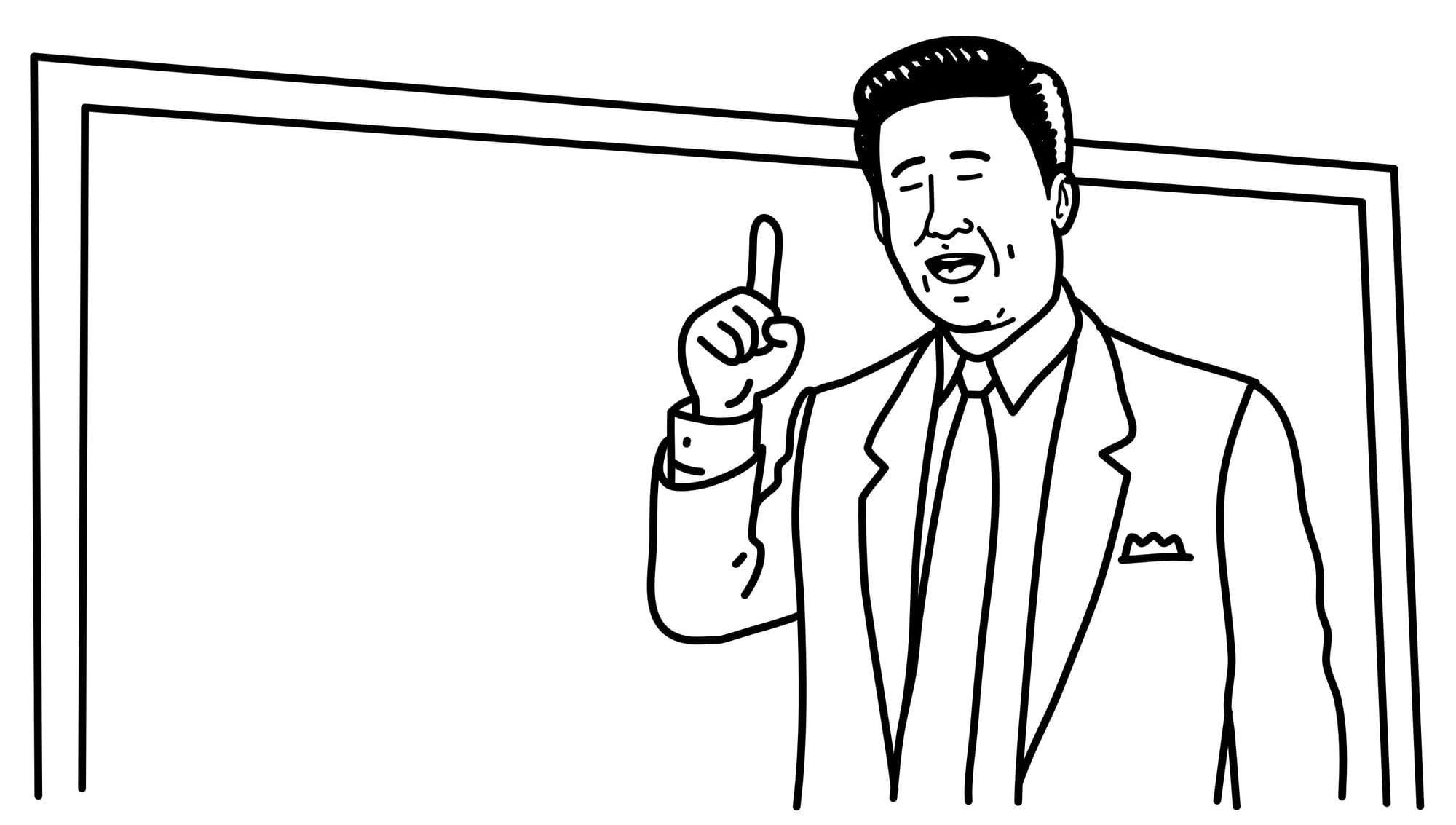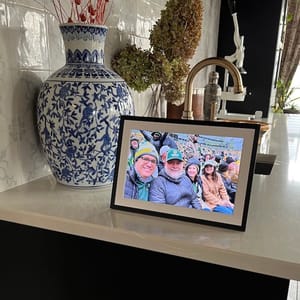Quick notes to help you grow your business in less time with less effort. . . starting next week.
In this issue:
- Thoughts on Algorithms
- Being Human
- Random Stuff
Thoughts on Algorithms
- The algorithm we see is better than the one we don't see. A company's hiring process (process/set of rules to follow) is more helpful than the black box AI algorithm promising to help us find our next best employee.
- Pretending robots/algorithms won't help us isn't helpful. I'm not advocating for us to outsource decision-making. I'm saying we should look for spots to use algorithms inside existing processes to ease workloads or speed up results.
- Remember how previously reliable algorithms broke during the pandemic? New data always appears. If we can't see inside the algorithm, how will we know what to change?
- Our efforts to predict the future are only slightly better than chance. When we use simple algorithms to help, it frees up brainpower to make changes when we're wrong. When we put in a lot of effort up front, the sunk cost fallacy shows up.
Being Human - Scarcity
"The way to love anything is to realize that it might be lost." – G.K.Chesterson (in R. Cialdini's "Influence")

I'm re-reading the book, "Influence: The Psychology of Persuasion," by Dr. Robert Cialdini. It's the new and expanded version. He first released this in 1984, but I didn't pick it up until the 90's sometime. It's written as a "don't let these professional persuaders do these tricks to you" book, but quickly became a how-to book for marketers and sales people.
On a related note, a friend of mine was telling a story about one of his first jobs selling. He related a technique they used which made him cringe just telling the story. The funny thing is, I was trained to use the exact same technique in one of my first sales jobs. I didn't like it either, but it worked. I mean, it really worked.
We were both selling ad space and were looking to fill slots with particular types of retailers. Like, "find a pizza place for this spot." The technique is to make a bunch of lists of pizza places. Each list has a unique pizza place in spot 1. Like this:

When you talk to each pizza place on the list, you put the list with their name on top in front of you. Maybe even casually mention that, "my job this week is to talk to all these pizza places because we only have one spot for pizza in our next publication." This comes with a deadline such as, "because the book is closing this week." If the pizza place I talked to didn't want to do the advertising, I made a show of crossing them off the top spot. The idea was that, as I crossed their name off, the pizza place owner would see one of his hated competitors on the list and think, "I don't want to do this, but I really don't want Joe to do it." This, of course, should lead to them asking me more about the ads and maybe even committing to the spot.
Cringy, yes. Effective, yes. Scarily effective.
I read "Influence" years later and when I got to #5 on his list of 7 laws, it explained what was happening. The Law of Scarcity. Humans ascribe more value to opportunities that are less available, as Dr. Cialdini says. My friend and I were both using the "limited number" tactic, spiced up with the "limited time" tactic. There was only going to be one spot for pizza, and the decision needs to be made soon. Act now!
Part of the magic was we were both doing this in person. Two weekends ago, I literally told my nephew to try this in his new sales job. He's selling ads to retailers. It's an app, and he sells it remotely, but I have a sneaking suspicion that he may find what my friend and I both saw thirty years ago.
The Law of Scarcity is a powerful motivator.
Random Stuff
“. . .allege that. . .Consumers Club, made false statements and misleading representations to them about (1) earnings, (2) success rates, (3) pricing, and (4) warranties, support, and service." – some old lawsuit

Talking to my friend about our first sales jobs brought up some funny memories. Funny now, of course. Back then they were painful life lessons. Like, the time I sold memberships to what was called a consumer's club. It promised members wholesale pricing on hard goods, like a couch for 1/2 the price of typical retail, but there was a catch. The prices were so low, the manufacturers were afraid their retailers would find out and cancel big orders. In order to join the "club", a buyer had to make a decision that night.
What's it gonna be boy, yes . . . or. . . no?
You're probably thinking what I was at the time. I get paid, right?
I was desperate to get a jobby-job. I didn't want to do sales, and I really didn't want to do one-call-close sales, but had to make some money. Baby was on the way. This guy, Doug, promised me their best people made $100,000 a year and more. He had a toupee, and his shirts didn't fit in the neck anymore. He introduced me to the Wonder Button. Increase the size of your shirt's neck size by up to 1/2", the ad says. His didn't work great because I could always see it. Super trustworthy. Word in the bullpen was Doug was a multi-millionaire. I didn't see much evidence of that though. He drove an old Accord. But maybe it was a millionaire next door kind of thing. Who knows?
I should have run, but I needed a dollar. The job was a drive from my little apartment, giving me 30–45 minutes of windshield time each way. Doug lent me cassette tapes to ramp up my sales skills. Zig Ziglar, Brian Tracy, and Dr. Dennis Waitley. "Positive self-expectation, positive self-realization."
Why did I leave such an amazing opportunity? It seems I missed a key part of the offer. I was paid a draw against commission. I heard salary plus commission. It took me over a month to make my first sale. I made two in one night. The way the commission was paid, I would get a check at the first of the month, just a week away. Each sale was worth like $1000. On top of the $500 every couple of weeks, this would end up being just enough for my lovely bride and I to eat on. My enthusiasm grew and I made more sales. Maybe this was my ticket?
Weeks later, commission checks were handed out and I didn't get one. "Commissions are paid the first check following the sale, after the cancellation period," my manager said. Ok, not optimal but I can make that work, I thought. Plus, I knew everyone now. The work sucked, but the people were fun.
Next month, no commission check again. I muttered something and my new friend, Spokane Dave, said something like, "yeah, that draw bullshit got me too." I was confused and talked to Doug. He said I need to sell more to earn commission, but I was on the right track. Keep it up, he said. I was speechless. Quick math showed I was in the hole, and it would take a lot more high-pressure-one-call-close sales to start making real money. I felt lied to as I went back to my table to make more cold calls.
I went home that night, explained the situation to my patient partner, and we sat in the dark watching TV with our tiny baby. The next day, when it was time to go to work, I ghosted them. Instead, I combed the classified ads and went to work for a bike shop. Hired the same day they interviewed me. Hourly pay plus 3% commission. Punch the clock, talk about bikes all day.
Goodness. I was so dumb. Not the best self-advocate. It's a wonder I can dress and feed myself sometimes.






